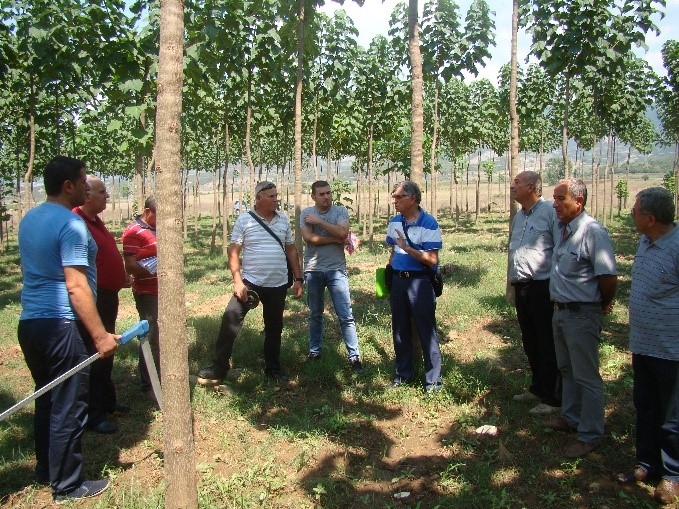News
CNVP monitors paulownia plantation model

Albania’s timber production from forests is mainly used for firewood at a time when high energy demands and lack of alternatives have resulted in illegal cutting and unsustainable harvesting. To improve the situation, CNVP Albania has explored the potential of producing wood biomass for sustainable renewable energy production by piloting small-scale plantations using fast-growing tree species such as poplar, willow and paulownia. CNVP Albania has developed this model in Gjirokastra Region on four sites using paulownia, cooperating with Forest and Pasture User Assocoations (FPUAs), Local Government Units (LGUs) and farmers.
On 30 August 2018, CNVP together with specialists of the forest service, farmers and FPUAs monitored a paulownia plantation in Kelcyre. Participants measured the timber volume, shared ideas and experiences, discussed opportunities on how to expand and improve fast growing plantations, and reviewed how to replicate the model in other parts of Albania. All stakeholders agreed that such tree plantations would effect a positive change in forest production by enabling commercially attractive production of wood materials, achieving ecological benefits, and contributing to CO2 reduction. In the example monitored, paulownia in its 4th year of plantation had an increment of 12.3m3/ha compared to the previous year. As paulownia is unknown in Albania, CNVP and its key stakeholders are monitoring the plantations to identify any negative effects, especially soil deterioration.
The activity was funded through the Forests for Local Economic Development project funded by the Embassy of Sweden and implemented by CNVP Albania
